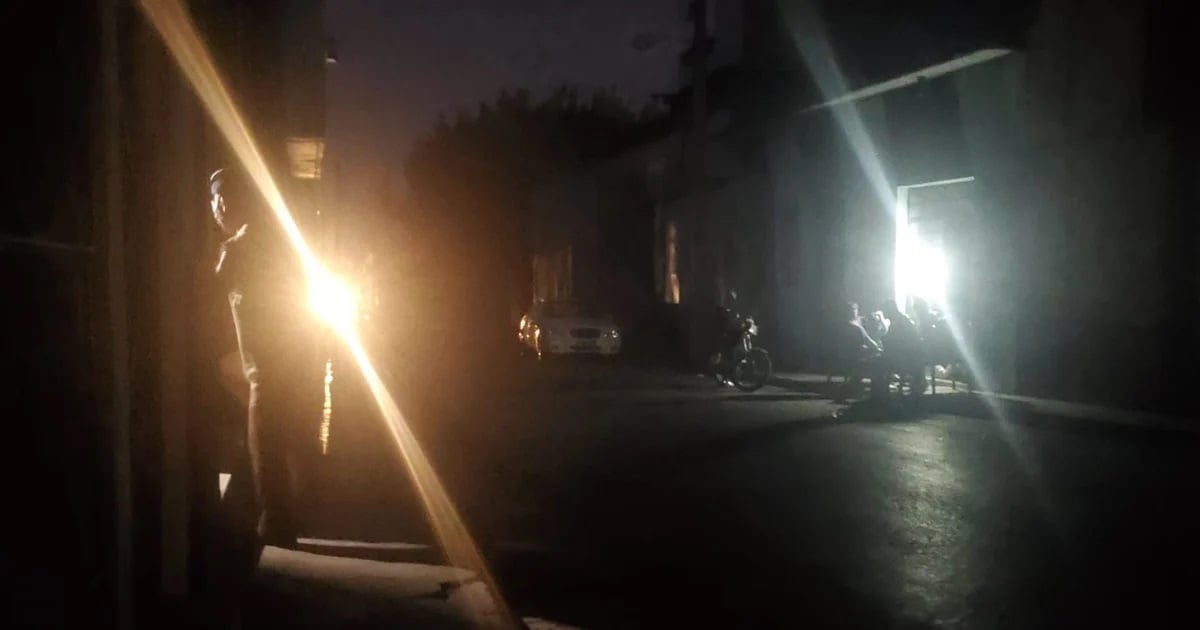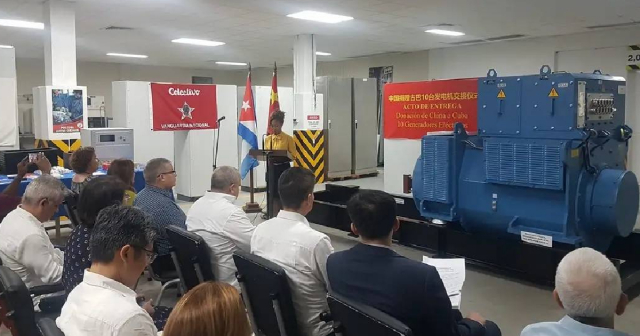
The Electric Company of Santiago de Cuba announced an increase in blackouts but dismisses the idea that service cuts will reach 24 hours, as warned on social media by independent journalist Yosmany Mayeta.
This Wednesday, Mayeta shared alarming statements from a source in Santiago de Cuba warning about the possibility of a general power outage occurring soon in that region of the country. The state company said that this information is false but confirmed that blackouts will increase.
They warned that the situation of the National Electric Power System (SEN) has worsened, which will cause some circuits in the province to experience blackouts outside of the scheduled hours or for the outages to last longer than expected. This, indirectly, confirms the information from Mayeta.
Government denies possible blackout.
The state company described the information circulating on social media about a supposed imminent general blackout as "rumors," despite reports of blackouts lasting more than 16 hours in some areas.
"The news that has been circulating on social media for a few hours about the possibility of a general blackout is false. Stay informed through our channels and institutional profiles, where we will provide all relevant information regarding the situation in the province," they stated in their official announcement.
Factors that exacerbate the crisis: Breakdowns and lack of fuel
The Minister of Energy and Mines, Vicente de la O Levy, provided statements to the media in which he explained the main causes of the deterioration of the SEN.
He pointed out that the crisis is due to a combination of factors, among which the shutdown of several generating units due to breakdowns and the critical fuel deficit stand out.
Regarding the affected units, De la O Levy detailed that the Mariel 8 thermoelectric plant, located in Artemisa, is expected to be incorporated into the system this Thursday, while the Diez de Octubre 5 plant in Camagüey hopes to be operational again in the next four or five days after the repair of leaks in its boiler.
However, the situation is more complicated at the Carlos Manuel de Céspedes thermoelectric plant in Cienfuegos, which attempted to reintegrate into the system the previous day without success. In Mayabeque, the Habana 1 unit is scheduled to return to the SEN on Friday, after the repair of damaged pipes with resin is finalized.
Fuel crisis: a problem of great magnitude
The minister also emphasized that the main cause of the disruptions is the fuel deficit, not only for electricity generation but for the rest of the sectors of the Cuban economy.
It was reported that there are fuel shipments in Cuban ports waiting to be unloaded. This operation will take place between Wednesday and Thursday, but it involves a significant "financial sacrifice" for the country, as high amounts must be paid weekly for these supplies.
Once the fuel is unloaded, the distribution process to the generators and service centers will begin.
De la O Levy explained that Cuba consumes 3,000 tons of hydrocarbons daily. A ship with a capacity of 20,000 tons of fuel can supply the country for approximately one week, which means that two or three vessels are needed every seven days to meet the needs for diesel, gasoline, liquefied gas, fuel oil, and turbine fuel.
They announce efforts but do not mitigate the crisis.
The minister referred to the joint effort being made by workers in the electrical sector and CUPET, the Cuban state oil company, to ensure the efficient distribution of the little available fuel in the shortest possible time.
However, those "efforts of the workers" do not resolve the country's energy crisis, nor do they change the harsh reality that Cubans face every day. The dissatisfaction and criticism from the people are not directed at the workers in the sector, but against the poor management of the government.
The current conditions of the SEN are becoming increasingly critical. Authorities demonstrate day after day that they lack the competence and resources to restore the proper functioning of the electricity service and manage the fuel shortage, key factors for the country's economy.
What do you think?
COMMENTFiled under:






